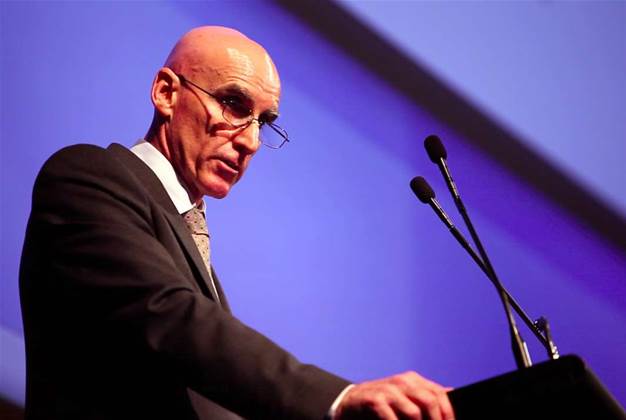A timeline of Mike Quigley

1971
Quigley joins Alcatel (then STC) in as a cadet electrical engineer, and climbs the ladder to be appointed president and chief of Alcatel USA by 1999.
Early 90s
Quigley was diagnosed with life-threatening leukaemia at age 38 and received a bone marrow transplant thanks to cells donated by his brother, according to a 2005 interview with Businessweek. He told the publication that the experience changed his outlook on life.
"Once you've stared death in the face, every day is a good day," he said.
2005
Quigley became Alcatel's president and chief operating officer overseeing 55,000 staff and operations in 130 countries.
June 2006
Despite being the obvious successor to Alcatel CEO Serge Tchuruk, the merger of Alcatel and France’s Lucent Technologies got in the way of Quigley’s path to the top job. He was instead appointed chief operating officer (COO) of the merged entity under Lucent’s Pat Russo.
One month later a reportedly disgruntled Quigley took on the lesser role of President, Science Technology and Strategy at Alcatel-Lucent, citing “personal reasons”.
Early 2007
Quigley left Alcatel-Lucent altogether and returned to Australia in September.
July 2009
Quigley was appointed inaugural CEO of the newly established NBN Co.
The Department of Broadband, Communications and the Digital Economy said his experience leading similar projects for major US carriers was one of the reasons he was selected.
“Few people in the world have first-hand experience with the deployment of the type of network our National Broadband Network plan involves.
"Mike is one of those people,” it said.
December 2009
After only six months in the job Quigley locked horns will his political masters during Senate Estimates.
He publically disputed claims made by Senator Stephen Conroy that all Australians would benefit from the same NBN wholesale price regardless of whether they are connected by satellite, wireless or fibre-to-the-node.
"We won't be setting pricing policies in the company on the basis of quotes," he said.
December 2010
Quigley’s former employer, Alcatel Lucent, was forced to pay US$137 million by the US Securities and Exchange Commission (SEC) when it was found to have bribed officials in Asia and Latin America during Quigley’s tenure as COO. Quigley denied he was ever questioned by the SEC.
June 2011
Senate Estimates once again descended into a slanging match, with Quigley describing his interrogation on the Alcatel-Lucent bribery scandal as “a retrial of the five-year investigation” that had already been conducted in the US.
September 2012
Shadow communications minister and Quigley sparring partner Malcolm Turnbull publically criticised the CEOs appointment, raising early whispers that he may not keep the job under a Coalition Government.
"I'm not making any criticisms of Mike Quigley personally but [his] whole career has been working for Alcatel. ... He's never built a network, he's never run a network. This is essentially a construction job," Turnbull said.
March 2013
Quigley’s cause wasn’t helped by the revelation that it would take NBN Co three months longer than planned to connect 341,000 premises with fibre.
May 2013
Quigley said he didn’t expect Telstra's suspension of all pit-and-pipe remediation work due to the discovery of asbestos remediation to effect roll-out figures.
“So sorry to break your heart,” Conroy told Senate Estimates committee members.
About the same time rumours emerged that newly installed NBN Co Chairman Siobhan McKenna was gauging board satisfaction with Quigley’s performance, with an eye to pushing him out of the role.
June 2013
Senator Conroy resigned from cabinet following the re-instatement of Kevin Rudd as Labor leader and Prime Minister. He was replaced by Anthony Albanese, who publically endorsed Quigley despite internal tension within NBN Co.
July 2013
Quigley announced his intention to retire from NBN Co once a successor is selected.



_(23).jpg&h=140&w=231&c=1&s=0)

_(28).jpg&h=140&w=231&c=1&s=0)





 iTnews Executive Retreat - Security Leaders Edition
iTnews Executive Retreat - Security Leaders Edition
 iTnews Benchmark Awards 2026
iTnews Benchmark Awards 2026
 iTnews Cloud Covered Breakfast Summit
iTnews Cloud Covered Breakfast Summit
 The 2026 iAwards
The 2026 iAwards












_(1).jpg&h=140&w=231&c=1&s=0)



